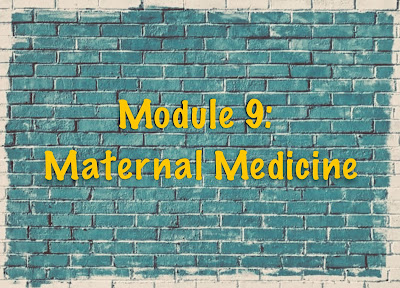Post #1
This blogpost is Post #1 of Summary of NICE guideline “NG 121: Intrapartum Care for Women with Existing Medical Conditions or Obstetric Complications and their Babies” released in March 2019. As this is an extensive and lengthy guideline, so I will be covering it in two posts.
This blogpost is Post #1 of Summary of NICE guideline “NG 121: Intrapartum Care for Women with Existing Medical Conditions or Obstetric Complications and their Babies” released in March 2019. As this is an extensive and lengthy guideline, so I will be covering it in two posts.
This post covers intrapartum care in Heart Disease, Asthma, Long-term Systemic Steroids, Bleeding Disorders, SAH / AV Malformation of Brain, Acute Kidney Injury (AKI) or Chronic Kidney Disease (CKD) and Obesity
I have extracted the main points only. You must read the original guideline to have complete understanding. Original guideline can be downloaded here: NG 121
This guideline should be read along with NICE intrapartum Care for Healthy Women CG190 (N.B: In this summary when it is written “to manage as low risk /like normal/follow routine intrapartum care” refers to CG 190)
Kindly let me know in comments below if anything needs to be modified in this post and suggestions to improve future posts are welcome.
Thanks
NICE 121: INTRAPARTUM CARE FOR WOMEN WITH EXISTING MEDICAL CONDITIONS
Information for women with existing medical conditions
- Clarify with women whether and how they would like their birth companions(s) involved in discussions about care during labour/birth
- Offer information about Intrapartum care including
- General information
- How medical condition affect care
- How labour & delivery affect medical condition
- How medical condition and its management affect baby
- Offer this information in pre-conception consultations or as early as possible during pregnancy & Allow extra time to discuss
- Information delivered by a member of multidisciplinary team (MDT)
Planning for intrapartum care with women with existing medical conditions – involving a multidisciplinary team
- MDT led by named healthcare professional to prepare individualized plan involving woman
- Plan should be:
- Based on → shared decision making principles
- Reviewed with woman and her birth companions(s) → as soon as possible throughout pregnancy & on admission for birth
- Updated → if change in medical condition
- Shared with → GP & teams providing Antenatal/ Intrapartum care
- MDT may include:
- Midwife, Obstetrician, Obstetric Anesthetist, Obstetric Physician or Clinician with Expertise in care of pregnant women with medical condition, Clinician with Expertise in Medical Condition, Speciality Surgeon, Critical Care Specialist, Neonatologist, woman’s GP, Allied Health Professionals
HEART DISEASE
Risk Assessment
- Follow principles of MDT working
- Include a Cardiologist
- Heart disease diagnosed intrapartum→ urgent multidisciplinary discussions & take woman’s preferences into account
- Some women may be low risk→ follow routine intrapartum care




